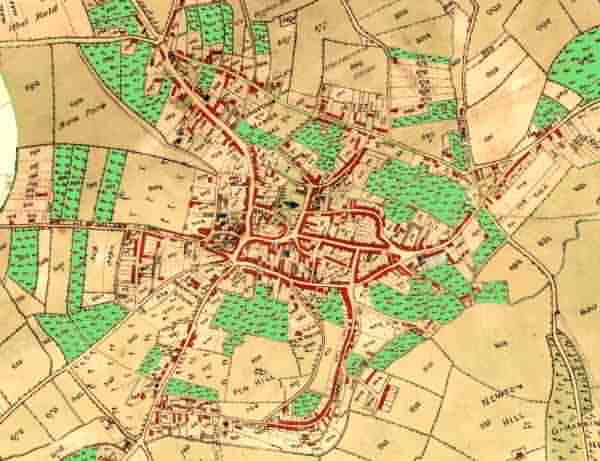Yeovil's Orchards
Yeovil's Orchards
Growing apples for world-famous Somerset cider, or 'Scrumpy'
Cider was brought to Britain by the Romans and production has been recorded at least as early as the eleventh-century. The local dialect for a strong or sharp tasting cider, made in Somerset, is ‘scrumpy’ and has been consumed and made within Somerset as well as being distributed around the world for centuries. With Somerset being one of the biggest cider counties in England, the West Country is known for the traditional method of cider making, using original, sharper types of cider apples.
In 1797, John Billingsley wrote in his 'Agricultural Survey of Somerset' of the great number of orchards for which the land is "peculiarly adapted". He noted that the average price of apples was "about thirty shillings per hogshead" (in today's value, around £150 for a 54 imperial gallon barrel).
According to Billingsley, "The sorts of apple in best estimation are Royal Wilding, White Styre, Court of Week Pippin, Pounset or Cadbury, Flood Hatch, Black Pit Crab, Buckland, Mediate or South Ham, Royal Jersey, Woodcock, Red Hedge Pip, Old Jersey and Redstreak." None of these varieties are known today. With regard to Redstreak, Billingsley wrote "A four yellow apple, streaked with red on the sun-side, be its name what it may, is undoubtedly a good cyder fruit."
In the Yeovil town area, as seen from the map below, a substantial acreage was devoted to orchards. In the parish as a whole (which consisted of 3,530 acres), 227 acres spread across more than a hundred orchards, were devoted to growing cider apples.
The low wages being paid at this time, especially in the surrounding countryside, were usually augmented by an allowance of cider. For example, a labourer received one shilling a day in winter 'with cider' and one shilling and fourpence 'with cider' in summer. The latter amount was also paid for mowing grass per acre and one gallon of cider, while reaping wheat was paid for with four shillings per acre and two and a half gallons of cider.
In Yeovil, of course, the selling of unlicensed cider was a particular problem and this report of the Petty Sessions of July 1828 is typical ".... were severally convicted in the mitigated penalty of £15 (over £1,000 at today's value) each, for retailing cider and allowing it to be drunk on the premises, contrary to law - John Evans, Jesse Hann and Thomas Vagg, all of Yeovil." In order to combat the apparent national rise in drunkenness, especially amongst the poor, the government enacted the Beerhouse Act 1830.
Under the 1830 Act, any householder who paid rates could apply for a license to sell beer or cider and set up a so-called beerhouse, usually in his own home. The license would also allow him to brew his own beer or cider on his premises. The license cost a one-off payment of two guineas - £2.10 in today’s money but about £160 in today’s value.
The large number of orchards, both in the town itself and the parish as a whole, lasted right up to the end of the nineteenth-century.
map

Orchards, coloured green, superimposed on the 1846 Tithe Map. Most of these orchards are now built on.